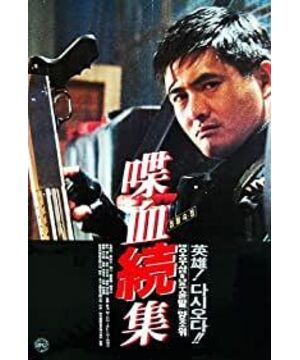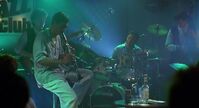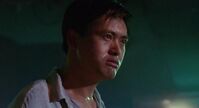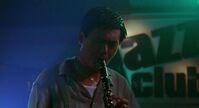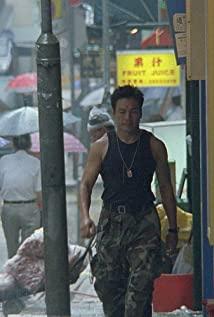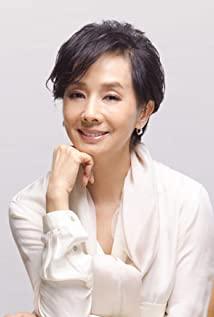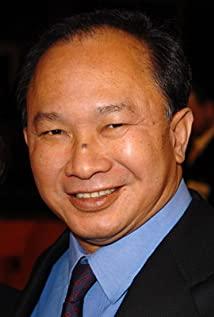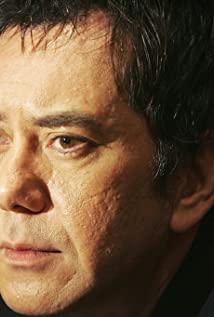Still can't help but be nostalgic. Because Chow Yun-fat was unbearable. Chow Yun-fat, who had lost weight to the point of being withered in the movie "Macao Times", used his poor performance to destroy all the good memories of my adolescence. Twenty years ago, Zhou jumped from "box-office poison" to a superstar in Hong Kong films, and the biggest driver was director John Woo. There were so-called three major directors in Hong Kong movies at that time - Tsui Hark John Woo Wang Jing. Wang Jing has always been attracting attention for his vulgar style. His greatest achievement is to shoot the "God of Gamblers" series of films to the point of flooding, followed by the Hong Kong tertiary film to the peak of entertainment (he was the one who took off Shu Qi's clothes), Although it dominates the film market, it is ultimately underestimated. However, Tsui Hark filmed "New Dragon Inn" in his exploration of new martial arts, "A Chinese Ghost Story" series in the extraction of traditional literature, and "Oriental Invincible" series in the reflection of traditional culture. And Wu Yusen has always adhered to his literary and artistic line, and has produced a large number of masterpieces that can be famous for later generations. Films such as "Blood Two Heroes", "Rogue Goofy" and "Peace Hotel" show the so-called elegant Oriental violence aesthetics, and its classic His work "The True Color of Heroes" is even more popular. But as far as I'm concerned, I've always stubbornly believed that the best Hong Kong shootout and gangster film is John Woo's 1992's "The Detective", and there's no other film out there. And the more well-known "Infernal Affairs" is just a plagiarism by Liu Weiqiang of Galaxy Imaging ten years later to Wu Yusen with respect. Because the two films have too many similar layouts. The same police undercover, the same right and wrong, the same self-identity chaos, the same reluctance to succumb to fate (these then remind me of the recent hit "Remaining Sin"), and even the undercover protagonist is played by Tony Leung. But the difference between the two films is being thoroughly observed by Tony Leung. Liang's undercover and gangster A Lang played in "Spicy Detective" has clear and firm eyes. He clearly knows his ultimate goal in the elegant killing poke. suffering from betrayal. Therefore, there must be many viewers who clearly remember the weird smile on his almost twisted face when he drew his gun and faced Uncle Hai. Because his true identity is deeply hidden in the underground pain, he is particularly eager to get rid of everything. His ideal is to go to the Arctic Circle, bathe in the sun all day long, without fear and hiding, and live a life without restraint. Chen Yongren, the undercover police officer in "Infernal Affairs", has entered into an unbearable middle age. The character played by Tony Leung has a dusty face, frosted temples, a messy mustache on his chin, and unruly hair, which clearly tells the audience that this man no longer cares about the process of life. A bit of self-deprecation of the state of existence. When we reach middle age, we have already discovered: Even if you are exhausted, but with real non-utilitarian ideals, life is still happy. The most terrifying thing in life is that there is desire but no desire, power but no heart, only impatience but boredom, nothing more than nothing. Therefore, after careful analysis, it is also a confusion of self-identification. Ah Lang is depressed, but Chen Yongren is entangled. The former is trying to live seriously, the latter is just inexplicably living. Therefore, "Hot Detective" is a sympathetic understanding of human nature, and it has a lot of respect, while "Infernal Affairs" just tells the audience that people are like this, everyone is chaotic, and there is no exception. So Liu Weiqiang really can't compare to Wu Yusen in his prime. But time kills everything. After returning from the United States, John Woo filmed "Red Cliff". The plot was bizarre and unreasonable, and the character design was even more inexplicable. Later, "Peace Wheel" was known as a giant system, but it was mediocre and tasteless. Thinking about it, it is also good fortune. The Chow Yun-fat he held up in one hand also kept making bad films. Ironically, it was Wang Jing and Liu Weiqiang who were looking for Zhou to make bad films! And Tsui Hark, who is as famous as John Woo, also shot a self-destructing masterpiece such as "Flying Armor of Dragon Gate". Maybe this era has changed and the audience has changed, so the once high-end John Woo can only bow his head, join hands with Chow Yun-fat, and run to Wang Jing and others who he once despised, and then hit the increasingly stupid audience haha, after that, discuss A little bit of color.
View more about Hard Boiled reviews


